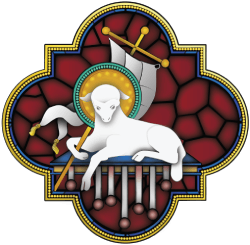August 11 | Pentecost 12, Year B
2 Sam. 18:5-9, 15, 31-33 or 1 Kgs. 19:4-8
Ps. 130 or Ps. 34:1-8
Eph. 4:25-5:2
John 6:35, 41-51
We need a preface to our scene of Elijah, despondent and frightened, sitting under a broom tree, praying for his death. He had just won a great contest against the prophets of Baal, which concluded in bloody destruction. “Elijah said to them, ‘Seize the prophets of Baal; do not let one of them escape.’ Then they seized them; and Elijah brought them down to the Wadi Kishon and killed them there” (1 Kgs. 18:40).
The prophets and their god were especially dear to the wife of King Ahab, and she would have her revenge. “Ahab told Jezebel all that Elijah had done, and how he had killed all the prophets with the sword. Then Jezebel sent a messenger to Elijah, saying, ‘So may the gods do to me, and more also, if I do not make your life like the life of one of them by this time tomorrow” (1 Kgs. 19:1-2).
Running for his life, thoroughly exhausted and emotionally spent, Elijah prays for the release of death. The story is ancient and, in some respects, not to our liking, but there is something utterly modern about this man: alone, exhausted, fearful, depressed, and dreaming of death.
God comes to the prophet Elijah with the gift of nourishment. “Suddenly an angel touched him and said to him, ‘Get up and eat.’ He looked, and there at his head was a cake baked on hot stones, and a jar of water. He ate and drank, and lay down again. The angel of the Lord came a second time, touched him, and said, ‘Get up and eat, otherwise the journey will be too much for you.’ He got up, and ate and drank; then he went in the strength of that food for forty days and forty nights to Horeb the mount of God” (1 Kgs. 19:5-8).
At some time, we will all feel and know that “the journey is too much.” Life, for all its blessings, is at times overwhelming and profoundly sad. We cannot go on without supernatural bread for the long road ahead. And we well know the source of our nourishment. “Very truly, I tell you, whoever believes has eternal life. I am the bread of life. … This is the bread that comes down from heaven, so that one may eat of it and not die. I am the living bread that came down from heaven. Whoever eats this bread will live forever; and the bread that I give for the life of the world is my flesh” (John 6:47-51).
We may receive the bread of life by turning to Jesus, following him, and cleaving to him. In a very special and mysterious way, we experience this in the sacrament of Holy Communion. The Body and Blood of Christ feed our bodies and souls unto everlasting life. Moreover, the presence of Christ in the Eucharist is the deepest satisfaction of every human desire. Christ is the food we need and the food we have.
Consider what Christ gives you by giving you his Body and Blood. In a prayer of thanksgiving for the Eucharist, St. Bonaventure, a 13th-century Franciscan theologian, offers a prodigious description of all we receive in the Eucharist. Listen to his list. “You alone are my hope, my faith, my riches, my delight, my happiness, my joy, my rest and tranquility, my peace, my goodness, my aroma, my sweetness, my food, my refreshment, my help, my wisdom, my portion, my possession, my treasure” (Preces Selectae).
The next time you sit under a broom tree, despairing of your life, eat this food.
Look It Up: Psalm 34:7-8
Think About It: After receiving Communion, sit with the presence of Christ; feel what St. Bonaventure felt.



